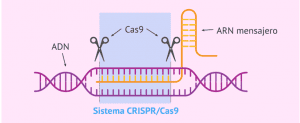ORIGINAL ARTICLE
RIBEIRO, João Batista Almeida [1]
RIBEIRO, João Batista Almeida. Abortion in Brazil: Ideological views. Revista Científica Multidisciplinar Núcleo do Conhecimento. Year 06, Ed. 01, Vol. 01, pp. 84-91. January 2021. ISSN: 2448-0959, Access link: https://www.nucleodoconhecimento.com.br/law/ideological-views
SUMMARY
Abortion over the course of many decades was seen as an immoral act, having been subject to great repudiation by the ancient civilizations, state laws and the negativism of religious doctrines have always proved to be a great embarrassment to this practice. The criminalization of abortion was in ancient times, times when the church increased great influence under empires and nations, so religious orders used such status to satisfy the interests of the congregations themselves. But even with adverse situations, the culture of this technique has remained active worldwide, only in Brazil it is estimated that more than 503,000 abortions are performed per year, denoting that clandestinely abortion still persists in existence. The religious fundamentalism of the world’s largest Catholic country, followed by state conservatism, is a great embarrassment to the acceptance of such a practice. The research was built based on these problems: What is the relationship between abortion and existing ideologies in Brazil? Is there a miscegenation between the legal system and religious fundamentalism? This article aims to make an analysis about the church’s magisteriums and current legislations, addressing the abortive modalities, demonstrating the vehemence of these practices that have gone through decades, and which still remain constant in all social classes in Brazil.
Keywords: Abortion, Human Rights, Civil Law, theology.
INTRODUCTION
Through newspapers and the various media, the world’s population constantly experiences the incessant struggle for the right to life, according to data from the UN (United Nations) sixteen thousand children die every day from hunger, one every five seconds, still in this context of miserability a billion adults are totally illiterate, in this struggle for survival the majority suffers at the mercy of hunger and war. In this context of suffering, discussions for life are widely instigated by government programs, aiming to reduce the impacts of this human condition of miserability. While thousands of children starve and fight for life, kind of directly or indirectly for man’s action, others are not even born, because they are denied in their own mother’s womb. This research aims to analyze the issue of abortion in Brazil, addressing its ideological confrontation within current legislation and the magisteriums of Christian doctrines.
MATERIALS AND METHODS
The methodology adopted for the elaboration of this work consists of gathering, researching, and analyzing the various information published on the subject, it comprises, therefore, in a search for bibliographic research, in a primary source, selecting and synthesizing the ideas that relate to the theme to better understand it, highlighting the literal citations of scientific works, legislation and religious doctrines.
ABORTION: IMPETUOUS AND CURRENT
According to the civil code of 2002, the person’s civil personality begins when the person is born alive; but the same legislation in force argues that from conception, the unborn child has his rights respected.
Thus, when the legislator edited the text of the Civil Code of Brazil of 2002 (BRASIL, 2002, p.01), had in art. 2 o in verbis: “Art. 2 o The civil personality of the person begins from birth with life; but the law puts the rights of the unborn child safe from conception.”
Many wonder who the unborn child is; but the origin of the word comes from the Latin nasciturus, “the one who is to be born”, if something comes to be born precept the existence of life. For many decades this right to life has been questioned, the battle between laboratories, pharmacists and religious entities has become a constant struggle around the world; on the one hand markets that raise millions of dollars in abortion techniques and medicines, on the other we see the legacy of millennia of years, religions that try to maintain the integrity of their magisteriums, defending the right to life and repudiating methods that contradict it.
According to the catechism of the Catholic Church (CIC §2270)
Human life must be respected and protected absolutely from the moment of conception. From the first moment of its existence, the human being must see recognized his rights as a person, among which the inviolable right of every innocent being to life.
There are now several types of abortion, some techniques include saline poisoning, where a saline solution is injected into the fetus, this causes death within 12 hours due to dehydration, hemorrhage among other factors, suction where through this inserts in the uterus a tube that sucks and absorbs the fetus, another method is dilation or curettage, a cutting blade that skews the fetus into pieces facilitating removal , a very traditional method, but the RU-486 pill better known as the “morning-after pill” is the most commonly used.
Aníbal Bruno collects that (1976, p.159):
As it is generally accepted, provoking abortion is interrupting the physiological process of pregnancy, with the consequent death of the fetus. Abortion has been allowed either as premature expulsion of the fetus, or as the interruption of the pregnancy process. But neither of these facts will suffice in isolation to characterize it.
The world is experiencing major changes, different agendas have been attacked for genealogical and cultural issues, the World Health Assembly (2020), recently included a program of “sexual and reproductive health”, proposing the guarantee for individuals to have a pleasurable and safe sexual life, ensuring access to information and contraceptive methods. Faced with signs in favor of such techniques, we see that from ancient times to the present day, there is a trend in the familiarization of abortion that goes beyond decades. Like the antiquity of the theme, the U.S. (United States of America) has had a program favorable to abortion since the 20th century, but the Hayde amendment passed in 1976 limits access, being possible only in cases of rape, incest or risk of life of the mother; this device controls the use of federal resources for the practice of abortion.
OF THE CURRENT DIVERGENCES
Abortion is a theme that carries political and partisan ideologies, aims at influencers. In 2015 according to data from the SUS (Unified Health System), only Brazil treated 200,000 women after unsuccessful abortion procedures, many women undergo obscure forms in clandestine clinics. Dilma Rousseff in 2013, sanctioned law 12,845, providing for mandatory and comprehensive care of people in situations of sexual violence, without the presentation of evidence or police reports, and the SUS must have means to ensure the termination of pregnancy due to rape.
The legislator, when editing the text of law 12,845 of 2013 (BRASIL, 2013, p.01), had in art. 1o in verbis:
Art. 1º Hospitals should offer victims of sexual violence emergency, comprehensive and multidisciplinary care, aiming at the control and treatment of physical and psychological injuries resulting from sexual violence, and referral, if applicable, to social assistance services.
In Brazil, abortion is reputed criminal, but the legislation in force in art.128 of the Penal Code admits it in two cases, when necessary, if there is no other means to save the pregnant woman’s life or if the pregnancy results from rape and abortion has the consent of the pregnant woman. We have here a clash between the legislation in force the principle of double effect in the Catholic Church, because if abortion happens indirectly in an attempt to save the mother’s life, according to the church itself it is lawful and justified by the principle of the cause with double effect.
According to priest Brendan Coleman, there are certain actions that produce two effects: one good and the other bad, being tolerable the meaning of such acts (COLEMAN, 2018).
It is lawful to perform such acts as long as the following conditions are met: (i) The good effect is directly intended; the bad effect is only tolerated. (ii) The bad effect does not predate the good effect, for evil must not be committed to take good care of it. The end doesn’t justify my bad guys. (iii) The good effect on purgue, by its values and its density, the bad effect. (iv) There is no other feature to get the good effect. (PERGUNTE E RESPONDEREMOS, 2003).
The right to life is guaranteed in the magma letter of Brazil, being one of the great pillars of its sovereignty, “… the current Constitution clearly guarantees its own right to life, reiterating, in the context of Article 5, the death penalty in the country is endeaved. Thus, even in the most heinous crimes, the criminal cannot be punished with death.” (MARTINS FILHO, 2013). Abortion can happen in two ways: spontaneous and provoked, spontaneous happens by natural causes, also called indirect where there is no human intervention, the provoked goes through specific procedures and techniques being better known as direct or caused. The divergence between the church and abortion lies in the fact that from the moment of conception, human life is already immediately created by God, and no human or authority can point out the disposition about this life.
ABORTION IN BRAZILIAN LEGISLATION AND FROM A CHRISTIAN PERSPECTIVE
Article 5 of the CRF (FEDERAL CONSTITUTION, 1988) prohibits the death penalty in the country, the Civil Code (2002) reiterates from conception, the rights of the unborn child, being even possible to inherit it even before birth, the baby that will be born legally called an unborn child, still in the womb will be entitled to inheritance. The law guarantees him, from conception, his succession rights, but participation in the inheritance, is conditioned to birth with life, so if the baby is not born, the sharing will be made between the living heirs, with the part of the mother. For the Penal Code (1940) abortion is considered a crime against human life. But it is undeniable that thousands of women risk and lose their lives in search of this practice. The Catholic Church since ancient times, refutes the immorality of this practice, the evidence catechism (CIC §2271):
The Catechism of the Catholic Church has always watched over human life, and with this clarifies that, “Since the 1st century, the Church has affirmed the moral wickedness of every induced abortion.” This teaching has not changed. It’s still invariable. Direct abortion, that is, dear as an end or as a means, is gravely contrary to moral law.
In the same bias the code of Canon Law precept (Can, 871): “Abortion fetuses, if they are alive, will be baptized as long as possible.”
In turn Ronald Dworkin (2010) points out that:
Any human creature, including the most immature embryo, is a triumph of divine or evolutionary creation that produces, as if it were out of nothing, a complex and rational being, and also a triumph of what we commonly call the “miracle” of human reproduction, which makes every new human being at the same time different from the human beings who created it and a continuation of them.
Abortion is consummated with the “caused” death of the fetus, and it is not necessarily necessary to have expulsion for the configuration of the crime, it can also occur in the mode of attempt, in this abortive maneuver fails, the fetus consequently survives with sequelae; this act constitutes unfavorable judicial circumstances (Art. 59 of the CP), being used against the genitor in case of conviction. Now, if this fetus even with the use of abortive tactics survives and comes to “be born”with life, and later practice new conducts aimed at death, we will have here configured the crimes of attempted abortion and homicide, or infanticide depending on the fact. The third party who acts in the provocation of abortion, being a doctor or anyone, doing so, with the consent of the pregnant woman, had been responsible for the crime typified in Article 26 of the penal code (1940), and may be in prison for up to four years; but if this third party acts of his own free will, without the consent of the mother, by way of example: the doctor who performs abortion procedure at the request of the family, or still fails to prescribe vital remedy to the health of pregnancy, responds this for the crime typified in Article 125 of the penal code, (1940) with a penalty of up to ten years of imprisonment. However, this constant criminalization of abortion has created degrading environments for people who see it as the only way out, in the words of Minister Barroso (2016).
According to Habeas Corpus/RJ 124,306 in the Federal Supreme Court (BARROSO, 2016, p. 16):
On the one hand, it has been widely shown that the criminal typification of abortion produces a high degree of restriction on women’s fundamental rights. In fact, criminalization confers poor protection on sexual and reproductive rights, autonomy, mental and physical integrity, and women’s health, with repercussions on gender equality and disproportionate impact on poorer women. In addition, criminalizing the woman who wishes to abort generates social and health costs, which result from the need for women to undergo unsafe procedures, with increased morbidity and lethality.
But if on the one hand the legal sphere has a contribution to try to guarantee fundamental rights, on the other several religious organizations close such flexibility. The document of Papa Paulo VI, Gaudium et Spes, in the part on respect for the human person provides (GS 27):
Everything that opposes life, such as all kinds of murder, genocide, abortion, euthanasia and voluntary suicide, goes against the dignity of the human person and seriously offends God, who is the author of life, entrusted men with the burden of preserving it, thereby, “abortion and infanticide are abominable crimes.
Abortion is a complex issue that has caused many discussions around the world, since ancient times several entities try to inhibit such a practice, others already see it as a necessary nature. Discrimination is so great that little is said about this issue, the biggest problem is that thousands of women lose their lives; in the search for a way out end up incoming deadly procedures in clandestine clinics.
FINAL CONSIDERATIONS
It should therefore be noted that the legal system strongly repudiates this act, but that the light of fundamental rights has been argued in order to protect and guarantee the freedom of expression of every human being. The right to life is an unavailable good, and no one can dispose of or point out actions that harm it. The documents, doctrinators and laws cited highlight the massification with which the theme is treated since ancient times, but also warns about the consequences that such actions can cause in a nation.
Life is a common good, being a universal right. Nature itself cries out for help, in the face of the threats of global warming we can see that climate change is a wake-up call for survival on earth. Animals fight for their own, defend their young to death, many are the cases of species that adopt others, but the human being in question has evolved to put on the agenda the disposition of life. Abortion is a topic that constantly causes conflict and puts at risk an entire society, unfortunately causes the death of thousands of women; neglect of the subject has been somewhat appalling. We see organizations that try to save the lives of these fetuses, betting on a reverse psychology with these mothers, but what is little is found are health systems that reduce the pain of those who bet for such practice. The constant ideological conflicts have raised new visions, which start from premises related to the preservation of fundamental rights; fact is that these discussions should take new directions, perhaps less or even more conflicting.
REFERENCES
BRASIL. Constituição da República Federativa do Brasil de 1988. Brasília, DF: Presidência da República, [2016]. Disponível em: http://www.planalto.gov.br/ccivil_03/Constituicao/ Constituiçao.
BRASIL. Lei nº 10.406, de 10 de janeiro de 2002. Institui o Código Civil. Diário Oficial da União: seção 1, Brasília, DF, ano 139, n.
CONSTITUIÇÃO PASTORAL GAUDIUM ET SPES. Documentos do Concílio Ecumênico Vaticano II. São Paulo: Decreto-Lei 2.848, de 07 de dezembro de 1940. Código Penal. Diário Oficial da União, Rio de Janeiro, 31 dez. 1940.
MARTINS FILHO, Ives Gandra Da Silva. O Fenômeno da Terceirização e Suas Implicações Jurídicas*. Direito Público, [S.l.], v. 8, n. 43, jul. 2013. ISSN 2236-1766. Disponível em: <https://www.portaldeperiodicos.idp.edu.br/direitopublico/article/view/2054>. Acesso em: 13 dez. 2020.
ONU. Aborto. disponível em: https://nacoesunidas.org/oms-proibicao-nao-reduz-numero-de-abortos-e-aumenta-procedimentos-inseguros/ acesso em 19/11/2017
UOL NOTÍCIAS. Decisão (sobre aborto) é para adotar políticas públicas’, diz Barroso. Conteúdo Estadão. Em Brasília 01/12/2016 às 08h47. Disponível em: <https://noticias.uol.com.br/saude/ultimas-noticias/estado/2016/12/01/decisao-sobre-aborto-e-para-adotar-politicas-publicas-diz-barroso.htm> acesso em: 20 out. 2018
[1] Law Student – José do Rosário Vellano University – Technology Student at Work Safety – Unicesumar.
Submitted: December, 2020.
Approved: January, 2021.


